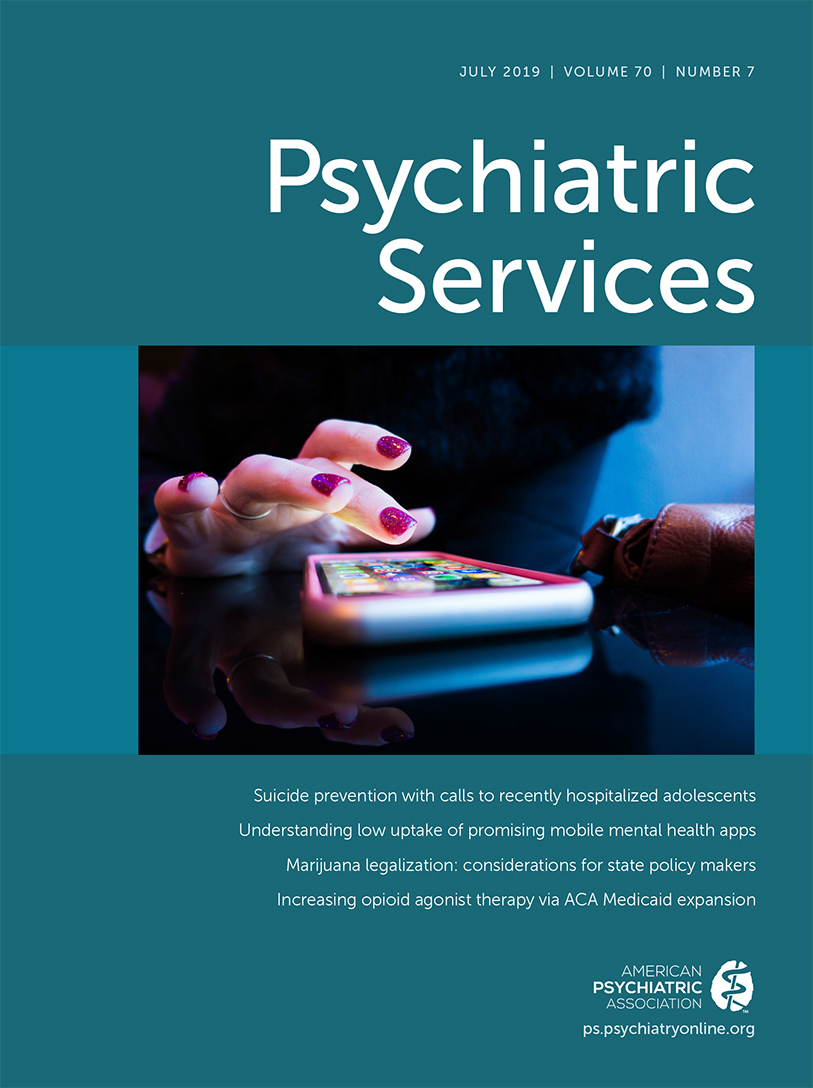Adoption by VA Residential Programs of Two Evidence-Based Psychotherapies for PTSD: Effect on Patient Outcomes
Abstract
Objective:
This observational study examined the association between patient outcomes at 39 U.S. Department of Veterans Affairs residential treatment programs for veterans with posttraumatic stress disorder (PTSD) and the degree of adoption of two evidence-based psychotherapies, prolonged exposure and cognitive processing therapy. The hypothesis was that a higher degree of adoption would be associated with better outcomes.
Methods:
Providers (N=171) completed a qualitative interview and quantitative survey about their level of adoption of prolonged exposure delivered individually and cognitive processing therapy delivered in individual or group formats. On the basis of responses, programs were assigned to one of three adoption categories: little or no adoption of either therapy (N=8), some adoption, (N=9), and high adoption (N=22). A linear mixed model compared patient outcomes (e.g., PTSD and depression symptom severity, substance use, and distress) between adoption groups.
Results:
The sample of veterans consisted of 2,834 who completed an assessment of PTSD symptoms and functioning at program intake and again at either program discharge or at 4 months postdischarge. Improvements in PTSD, distress, and alcohol use were noted over time for all programs, with decreases at follow-up. No effects of adoption group or a group × time interaction were noted for any outcome.
Conclusions:
Moderate to large effects were noted across all programs. However, programs that used prolonged exposure and cognitive processing therapy with most or all patients did not see greater reductions in PTSD or depression symptoms or alcohol use, compared with programs that did not use these evidence-based psychotherapies.



